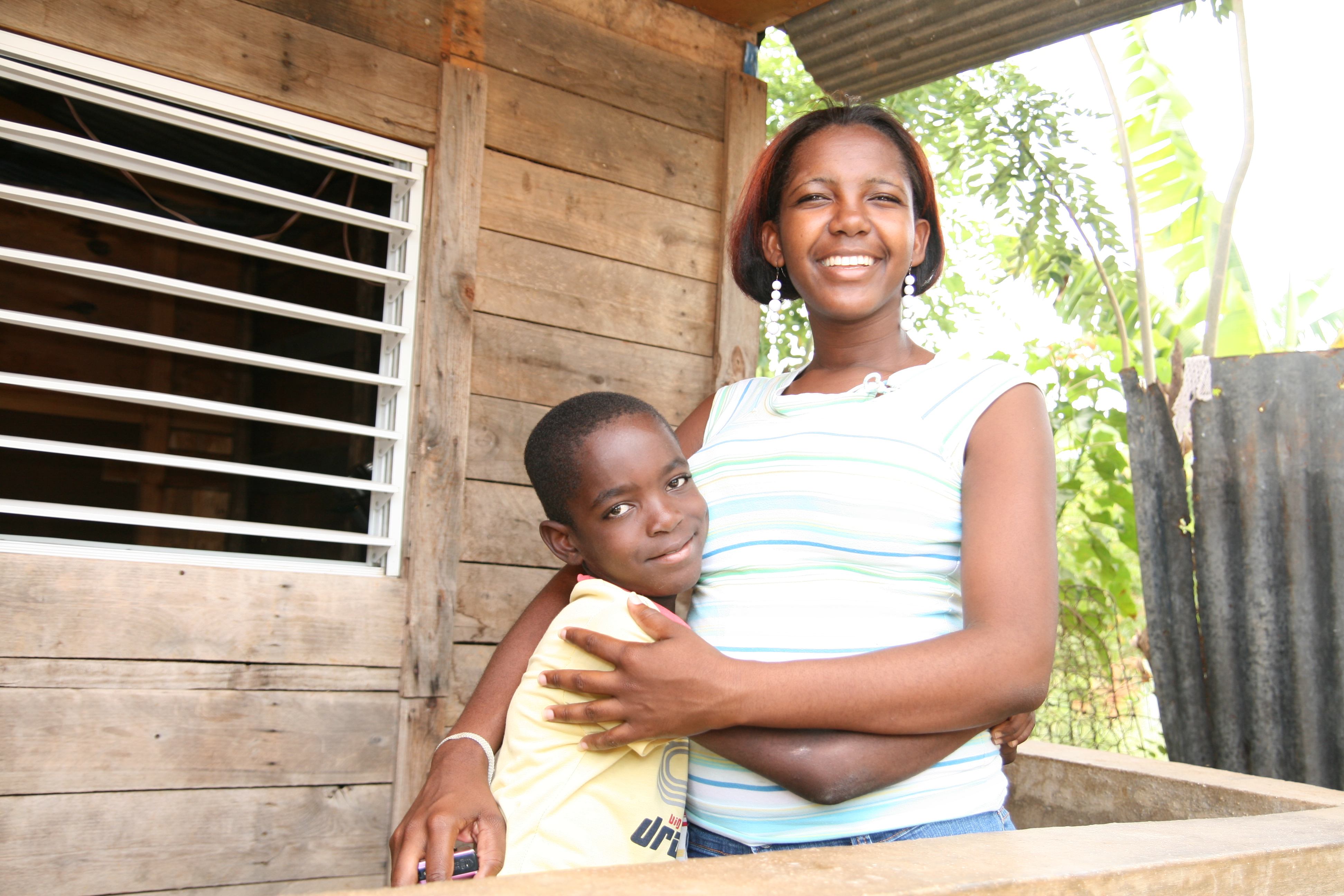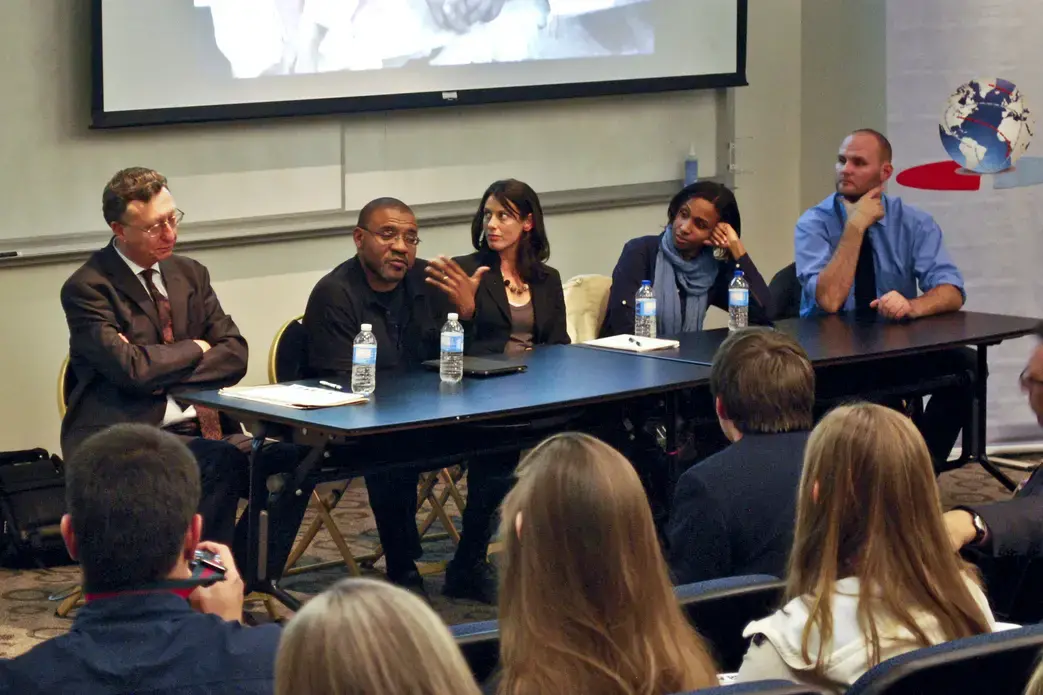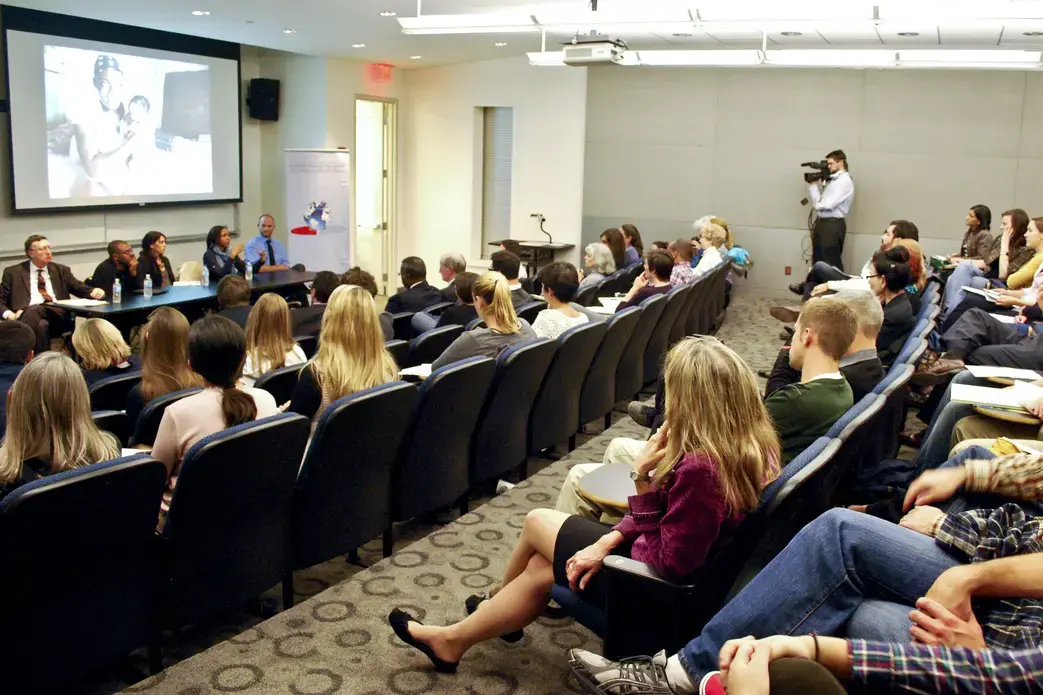When high school seniors from the School Without Walls in Washington, DC were asked what they've heard lately about Haiti by visiting Pulitzer Center journalists, they responded, "not much." Almost 10 months after the earthquake, media attention on Haiti has faded. The country's struggles have not. <br>
According to the <a href="https://www.un.org/News/Press/docs/2010/sc10026.doc.htm">United Nations</a>, an estimated 1.3 million Haitians are still displaced and only 18% of pledged funds have been made effective so far. <a href="/blog/untold-stories/wyclef-barred-campaign-streets-remain-calm">Wyclef Jean's brief presidential candidacy</a> gave Haiti another media boost, but coverage of Haiti has largely faded since the initial aftermath of the January 2010 earthquake. In response to this erratic media coverage, the Pulitzer Center is engaged in a year-long series of sustained multifaceted, multimedia reporting projects from Haiti and the Dominican Republic.<br>
As part of the Pulitzer Center's coverage on Haiti and its efforts to engage students in international reporting, Pulitzer Center journalists visited School Without Walls and the George Washington University over a two-day period October 20-21. The Center also co-sponsored "Haiti, After the Quake" with the George Washington University School of Media and Public Affairs (SMPA) on October 20. The October 20 panel, featuring poet/writer Kwame Dawes and journalists William Wheeler, Stephanie Hanes and Lisa Armstrong, aimed to present a more comprehensive picture of post-earthquake Haiti with discussion ranging from the aid industry, to HIV/AIDS to statelessness. A diverse mix of students and professionals attended the event, including the <a href="https://www.haiti.org/">Ambassador of Haiti to the US</a>, His Excellency Louis Harold Joseph, and Thomas Adams, Appointed US Special Coordinator to Haiti from the <a href="https://www.state.gov/">US Department of State</a>. Mark Asquino, senior public diplomacy fellow at GW's SMPA, moderated the panel at the Elliott School of International Affairs.<br>
When Armstrong first arrived in Haiti, she was struck by the resiliency of the Haitian people. "<a href="/blog/untold-stories/haiti-life-goes">The story for me here is...one of strength</a>." During the discussion she told the story of watching a Haitian doctor a day after the earthquake cry before at statue of <a href="/blog/untold-stories/haiti-neg-mawon-pap-jamn-kraze">Neg Mawon</a>, overwhelmed that amidst the rubble the symbol of Haitian independence had survived. Ten months later, Armstrong's impressions have changed. She says the story is no longer one of resiliency, but of a lack of hope. The statue of Neg Mawon, she said, is now covered in laundry; people's need to survive has surpassed national pride. Dawes seconded this perspective, describing the celebrated Haitian resiliency as both a strength and a detriment. Instead of asking and striving for more, Dawes says that Haitians make do with what they have, partially due to feelings that the international community has moved on.<br>
This sentiment of insignificance was echoed by the other panelists. Questions about where the pledged money was going and of accountability were recurring themes throughout the night and added to a rich discussion about the "industry of aid" and the tension between the need for assistance and the equally important need for autonomy. Wheeler mentioned one hopeful project in Haiti with one US NGO <a href="/blog/untold-stories/haiti-infrastructure-rebuilding-earthquake">teaching Haitian masons modern building practices</a>: "An earthquake is an act of God," he said, "but the death toll is a man-made disaster." <br>
Another big theme was HIV/AIDS. Previous to the earthquake, Haiti had made <a href="/projects/caribbean/after-quake-hivaids-haiti">remarkable strides in decreasing the prevalence of HIV</a> from 9.4% to 2.2%, explained Dawes. The fear is that increasing violence against women in the camps and rates of prostitution due to a lack of economic opportunities will reverse this trend.<br>
Hanes' work focused on <a href="/projects/caribbean/dominican-republic-life-margins">people of Haitian descent living in the Dominican Republic</a>, who are increasingly facing discrimination, marginalization and a loss of rights. As the Dominican Republic furthers restrictions on citizenship to this population, many are finding themselves virtually stateless and vulnerable.<br>
To read more about the Pulitzer Center's on-going reporting reporting on Haiti:<a href="/projects/caribbean/after-quake-hivaids-haiti">
After the Quake: HIV/AIDS in Haiti</a><a href="/projects/caribbean/haiti-reconstruction-building-back-better">
Haiti's Reconstruction: Building Back Better</a><a href="/projects/caribbean/resilience-ravaged-nation-haiti-after-earthquake">
Resilience in a Ravaged Nation</a><a href="/projects/caribbean/dominican-republic-life-margins">
Dominican Republic: Life on the Margins</a><br>
The George Washington University is a member of the <a href="/campus-consortium">Pulitzer Center Campus Consortium</a>.

The people of Port-au-Prince will forever measure their lives in two parts: before and after the...











